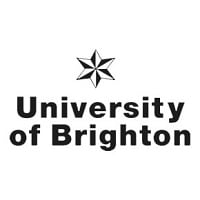Media and Communications
Position Details (PhD Program)
Research in Media and Communications at the University of Brighton critically analyses the role of media institutions, as well as the changing landscape of media industries and cultural production.
The University of Brighton fosters a thriving community of theorists and practitioners in the development of new knowledge around media cultures, technologies and practices. Our research examines audiences and reception, television and screen studies, digital media, gender and communication, communication and democracy, as well as media history, policy and law.
Key facts
As a Media and Communications PhD student, you will benefit from:
- a supervisory team comprising two or sometimes three members of academic staff. Depending on your research specialism you may also have supervisors from different schools, another research institution, or an external partner from government or industry.
- access to desk space and computers.
- access to a range of electronic resources via the university’s online library, as well as to the physical book and journal collections housed within the Aldrich Library and other campus libraries. PhD students also have access to cutting-edge facilities such as the Watts Lab and the Screen Archive South East.
- Recent and current PhD students have been successful in obtaining studentships covering both fees and living costs through the University of Brighton’s involvement in the AHRC TECHNE and the ESRC SCDTP programmes.
Our current areas of research expertise include:
- Digital Media
- Data Culture
- Environmental Communication
- Game Studies
- Community Media
- Screen Cultures
- Digital Transformations
- Media Practice
- Photography
- Film Studies
- Sound Studies and Music
- Gender and Sexuality
- Digital Humanities
- Cultural Informatics
- Creative Industries
- Mobility and Transport
- Activism
- Popular Culture
- Immersive Media/AR/VR
- Creative Media
- Innovation



 University of Brighton
University of Brighton